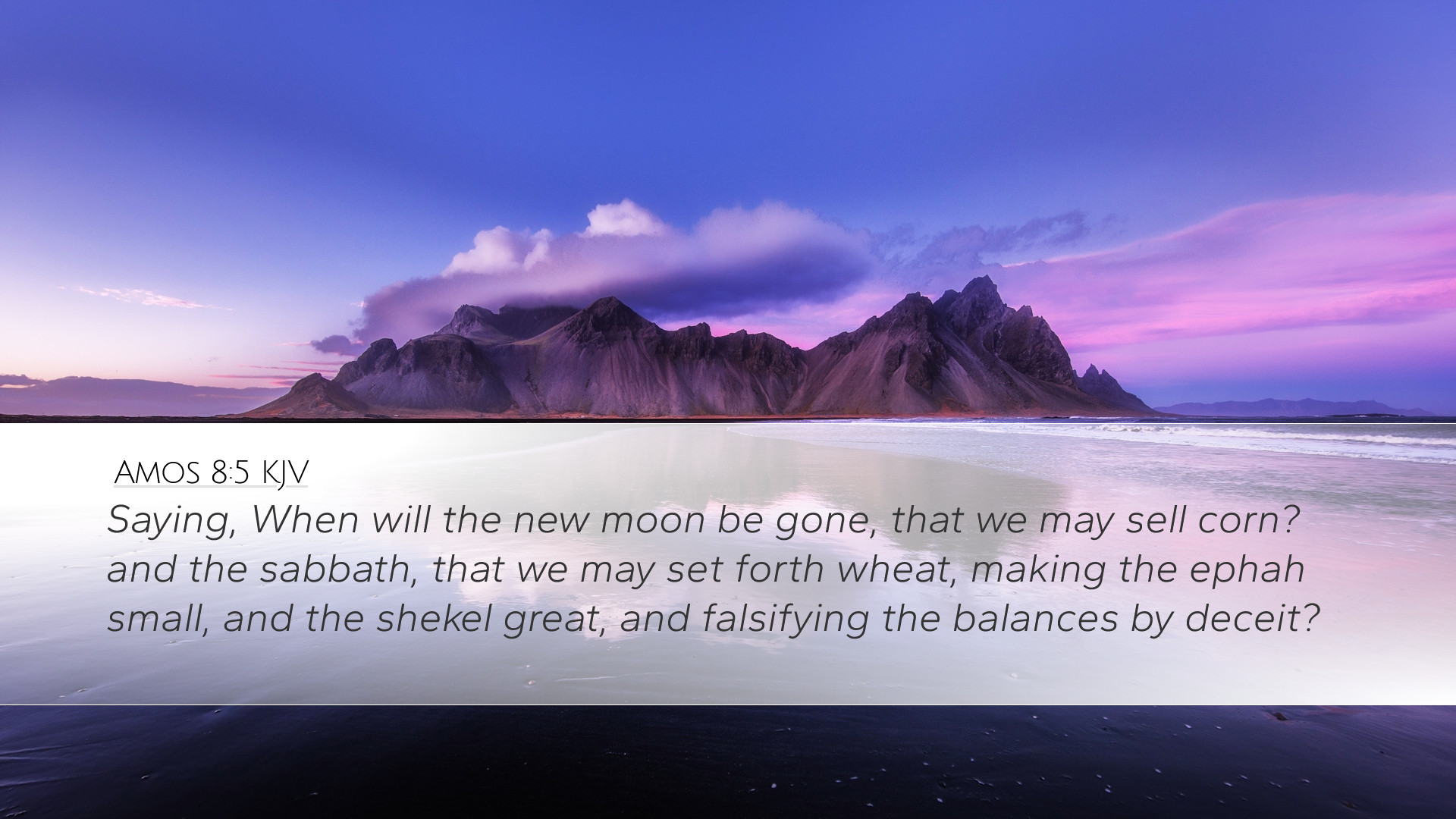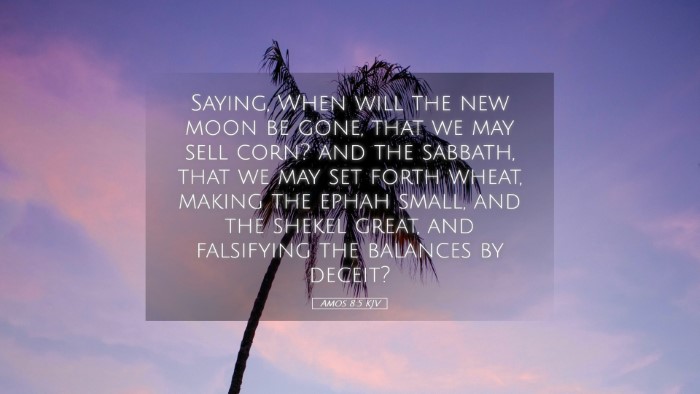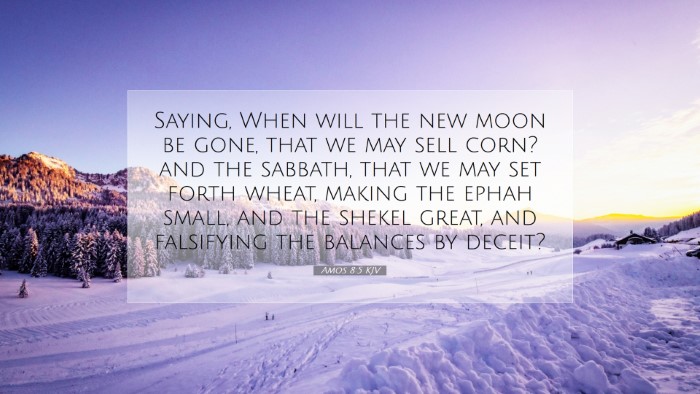Old Testament
Genesis Exodus Leviticus Numbers Deuteronomy Joshua Judges Ruth 1 Samuel 2 Samuel 1 Kings 2 Kings 1 Chronicles 2 Chronicles Ezra Nehemiah Esther Job Psalms Proverbs Ecclesiastes Song of Solomon Isaiah Jeremiah Lamentations Ezekiel Daniel Hosea Joel Amos Obadiah Jonah Micah Nahum Habakkuk Zephaniah Haggai Zechariah MalachiAmos 8:5
Amos 8:5 KJV
Saying, When will the new moon be gone, that we may sell corn? and the sabbath, that we may set forth wheat, making the ephah small, and the shekel great, and falsifying the balances by deceit?
Amos 8:5 Bible Commentary
Amos 8:5 - Commentary Summary
The verse Amos 8:5 states: "Say ye, When will the new moon be gone, that we may sell corn? and the sabbath, that we may set forth wheat, making the ephah small, and the shekel great, and falsifying the balances by deceit?" This pronouncement conveys a significant critique of the moral and ethical decay within Israel at the time of Amos. Various public domain commentaries provide insight into the implications of this verse for both its original audience and for contemporary readers.
Contextual Background
The Book of Amos addresses the Northern Kingdom of Israel during a time of prosperity that belied grave moral and spiritual failures. Amos, a shepherd, was called by God to speak against the social injustices, empty rituals, and idolatry prevalent in Israel. This verse specifically reflects the mindset of merchants who were eagerly anticipating the conclusion of holy observances—new moons and sabbaths—so they could pursue their business practices.
Theological Implications
The eagerness to return to commercial pursuits at the expense of sacred observances indicates a profound misunderstanding of priorities in the theocratic society of Israel. The trivialization of the new moon and the Sabbath reveals an attitude that places material gain above spiritual devotion.
Commentary Insights
- Matthew Henry:
Henry observes that the merchants’ impatience to resume selling after holy days reflects a heart removed from God. They equate their success in trade with divine favor, demonstrating a covenant breach that prioritizes worldly gain over worship.
- Albert Barnes:
Barnes highlights the economic practices of the time, indicating that the merchants were plotting to manipulate measures and weights to their advantage. This deception in trade was rampant in Israel, showing a lack of integrity, which violates God's covenant expectations for fairness and righteousness.
- Adam Clarke:
Clarke elaborates that the merchants' longing for the end of the new moon and the Sabbath is emblematic of a deeper societal issue: the neglect of God’s laws and a prioritization of wealth. He points out that the language used by these merchants captures a spirit of greed and dishonesty that runs counter to the very fabric of their identity as God's chosen people.
Moral Reflections
The prophetic message in Amos 8:5 serves as a timeless warning against the allure of materialism that can infiltrate the lives of believers. In today's context, this verse challenges individuals, congregations, and leaders to reflect on their own values and priorities.
It invites pastors to examine the ways their congregations may prioritize economic success over spiritual health. Students and scholars are prompted to engage deeply with the implications of integrating faith with social justice.
Application for Today
As we study Amos 8:5, we are called to:
- Reflect on our own attitudes towards work and worship. Are there instances where our focus on economic endeavors overshadows our spiritual obligations?
- Encourage integrity in our professional dealings, ensuring that our practices reflect our commitment to God’s justice and mercy.
- Recognize the ongoing relevance of Amos’s message in advocating for the poor and marginalized, standing firm against the systemic injustices that persist today.
Conclusion
Amos 8:5 provides profound insights into the human struggle with fidelity to God in the face of societal pressures and economic temptations. Through varied commentaries, we glean a collective understanding of the importance of prioritizing God’s commandments over worldly pursuits. The challenge posed by this verse is as relevant now as it was in the time of Amos, calling us to uphold God’s standards in all aspects of our lives.


